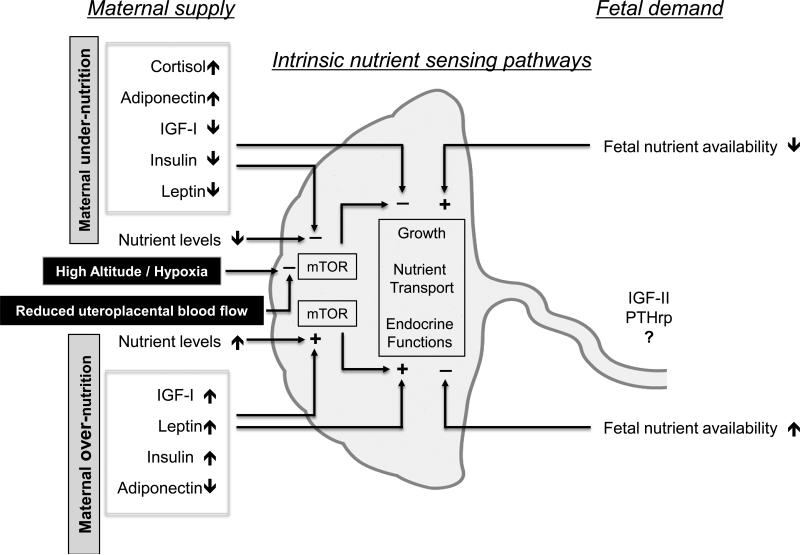Fig 3. Placental nutrient sensing.
The placenta integrates maternal and fetal nutritional signals with information from intrinsic nutrient sensors such as mammalian target of rapamycin (mTOR) signaling. This process, which we call placental nutrient sensing, results in a coordinated response, including altered placental growth, nutrient transport and endocrine functions, to balance fetal demand with the ability of the mother to support pregnancy. Thus, the placenta plays a critical role in modulating maternal-fetal resource allocation, thereby affecting fetal growth and the long-term health of the offspring. See text for detailed explanation. IGF-II, insulin-like growth factor II; PTHrp, parathyroid hormone related peptide. Adapted from (9) with permission from Cambridge University Press.

